News written by Rich Fiscus (April, 2009)
Written by Rich Fiscus @ 24 Apr 2009 12:49
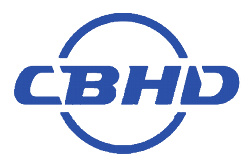 Players for China's CBHD format, formerly known as CH-DVD in China and C-HD-DVD by the DVD Forum, are finally available.
Players for China's CBHD format, formerly known as CH-DVD in China and C-HD-DVD by the DVD Forum, are finally available.
The two players released yesterday are made by Chinese manufacturers TCL and Shinco, and are expected to sell for close to $300 (about 2,000 yuan). Discs will be around $7 (50 yan).
Blu-ray players and discs, which made their debut in China last year, cost around $700 and $35 respectively.
CBHD is based partly on the HD DVD format which lost out to Blu-ray as the presumed HD successor to DVD, although it uses different video and audio encoding. Much of the technology used in CBHD was developed by China's Optical Memory National Engineering Research Center under funding from the Chinese governemnt
So far Warner Brothers is the only major Hollywood studio with plans to release movies in CBHD format. They plan to release 100 CBHD titles this year.
Tony Vaughan, managing director of CAV Warner Home Entertainment, said "I believe Chinese consumers are willing to buy legitimate content as long as the price is appropriate." He added, "We hope that more Hollywood makers will embrace this standard soon."
Written by Rich Fiscus @ 24 Apr 2009 11:38
 In the aftermath of the Pirate Bay verdict a week ago, some torrent trackers have already ceased operation to protect the individuals who own and operate them. Those that haven't are apparently becoming targets for a movie industry backed anti-piracy group.
In the aftermath of the Pirate Bay verdict a week ago, some torrent trackers have already ceased operation to protect the individuals who own and operate them. Those that haven't are apparently becoming targets for a movie industry backed anti-piracy group.
According to TorrentFreak, Antipiratbyrån, sent the following to the operators of one such tracker, SweDVDR.
"We noticed that you, through the activities with swedvdr.org, similarly engaged in copyright infringement of several works whose rights belong to our principals. You are hereby requested to immediately take the necessary measures to prevent the ongoing incursions."
Antipiratbyrån's letter went on to say they were recommending the studios they represent take legal action if this isn't done immediately. SweDVDR is closing down as a result.
Unless The Pirate Bay's appeal goes well, it doesn't look like Sweden will be a friendly place for torrent trackers.
Written by Rich Fiscus @ 24 Apr 2009 10:58
 The one billionth iPhone app was downloaded from Apple's iTunes App Store yesterday. Apple will be giving Connor Mulcahey, who downloaded the app, a MacBook Pro, 32GB iPod Touch, a $10,000 iTunes gift card, and a Time Capsule WiFi hard drive.
The one billionth iPhone app was downloaded from Apple's iTunes App Store yesterday. Apple will be giving Connor Mulcahey, who downloaded the app, a MacBook Pro, 32GB iPod Touch, a $10,000 iTunes gift card, and a Time Capsule WiFi hard drive.
Along with the announcement, Apple compiled lists of the most popular commercial and free apps over the first few months of the App Store's existence.
The list of 20 All-Time Top Paid Apps include 11 $0.99 apps. Others on the list range from $1.99 to $5.99.
The All-Time Top Free Apps list features seven which are interfaces to third party online services, six which are social networking oriented, five games, and three limited versions of commercial apps.
Written by Rich Fiscus @ 23 Apr 2009 1:31
 The judge who found four Swedish men guilty of making files available for copyright infringement in the Pirate Bay trial is coming under fire for an alleged conflict of interest. It seems he's a member of some groups whose purpose is to strengthen intellectual property protections.
The judge who found four Swedish men guilty of making files available for copyright infringement in the Pirate Bay trial is coming under fire for an alleged conflict of interest. It seems he's a member of some groups whose purpose is to strengthen intellectual property protections.
Judge Thomas Norström is a member of the Swedish Association for the Protection of Industrial Property and the Swedish Copyright Association. He told Swedish public radio "I did not judge that I had any conflict of interest in this case."
He reportedly claimed his participation in these groups in order to stay abreast of the legal issues surrounding copyright. However, his status as a board member of one group, in which all three entertainent industry who participated in the prosecution are members, seems to at least give the appearance of impropriety.
The Pirate Bay’s defense attorney, Peter Althin, indicated he would seek a new trial over the matter. An appeal of the verdict was filed earlier this week, before this revelation became public.
Written by Rich Fiscus @ 23 Apr 2009 11:56
 A proposal for extending copyright protection for sound recordings in EU member states to 70 years passed the European Parliament today. The original proposal for extending copyright for these recordings to 95 years had been approved by the European Commission and Parliament's Committee on Legal Affairs, but was subsequently rejected by the Council of Permanent Representatives.
A proposal for extending copyright protection for sound recordings in EU member states to 70 years passed the European Parliament today. The original proposal for extending copyright for these recordings to 95 years had been approved by the European Commission and Parliament's Committee on Legal Affairs, but was subsequently rejected by the Council of Permanent Representatives.
It now goes to the Council of Ministers, where it can still be rejected. Given the reported opposition by at least 11 countries (including Afterdawn's home country of Finland), voted against the proposed directive.
The extension goes against the conclusions of multiple studies which have been done on the effects of copyright term extension. Those studies overwhelmingly indicate term extension will have a neglible impact on the lives of the performers it purports to help.
On the other hand, they indicate a significant profit fot record labels, who continue to enjoy exclusive rights over decades old recordings.
If this directive is approved the next target is copyright terms for audiovisual works.
Written by Rich Fiscus @ 22 Apr 2009 7:32
 The recent Pirate Bay guilty verdict has stirred up a long standing debate over the role of file sharers in the shrinking market for recorded music. Yet another study, this time from the BI Norwegian School of Management, is showing that individuals who download illegally also buy far more music legitimately than the rest of the population.
The recent Pirate Bay guilty verdict has stirred up a long standing debate over the role of file sharers in the shrinking market for recorded music. Yet another study, this time from the BI Norwegian School of Management, is showing that individuals who download illegally also buy far more music legitimately than the rest of the population.
Also like previous studies, this one is being dismissed out of hand by the recording industry. A statement from an EMI representative seems to sum it up nicely.
Bjørn Rogstad said "There is one thing we are not going away, and it is the consumption of music increases, while revenue declines. It can not be explained in any way other than that the illegal downloading is over the legal sale of music."
If that's the actual thought process of label executives its easy to understand why they have done so poorly in the online marketplace. It has looked for a long time like their positions have been decided before looking at any evidence.
If you already "know" what the facts are, what are the chances you will pay attention to evidence that doesn't confirm your initial conclusion?
Written by Rich Fiscus @ 22 Apr 2009 7:11
 The new Bluetooth 3.0 specification has been released. The biggest change from Bluetooth 2.0 appears to be the addition of high speed capabilities borrowed from WiFi networking.
The new Bluetooth 3.0 specification has been released. The biggest change from Bluetooth 2.0 appears to be the addition of high speed capabilities borrowed from WiFi networking.
Bluetooth 3.0 devices will be designed to use a low speed connection, like that used by v2.0 devices, except when added speed can be utilized. At that point the connection will switch to use 802.11 (wireless ethernet) until its no longer than needed.
The additional speed could be used for streaming media or file transfers.
The Bluetooth Special Interest Group, which is responsible for developing the standard, would like to see the technology's role expand beyond mobile phone/headset or mobile phone/headphone connections to be more of a standard computer/peripheral connection - sort of like a wireless USB.
"The Bluetooth SIG is taking a logical step by applying Bluetooth protocols over an existing 802.11 radio to achieve efficient transfers of high data throughput applications," said Flint Pulskamp, wireless and mobile analyst at IDC. "Since Bluetooth and 802.11 already have significant traction in mobile devices, this coupled solution could prove to be an efficient interim solution, as the Bluetooth SIG continues to develop UWB for the future."
Written by Rich Fiscus @ 22 Apr 2009 6:45
 A 2 CD album offered exclusively to U2's paid website subscribers has been spotted on internet torrent trackers for download via BitTorrent. This follows the leak of their latest album earlier this year.
A 2 CD album offered exclusively to U2's paid website subscribers has been spotted on internet torrent trackers for download via BitTorrent. This follows the leak of their latest album earlier this year.
U2 frontman Bono and Manager Paul McGuinness have been very vocal in their criticism of P2P downloaders, and even stronger criticism of ISPs, whom McGuinness referred to as "shoplifters."
McGuinness spoke out in support of France's 3 strikes plan at last January's MIDEM conference in France. Would his opinion change knowing it would mean cutting U2 website subscribers from buying their product?
If not, what does that say about his understanding of the economics of music and the internet?
Written by Rich Fiscus @ 22 Apr 2009 12:22
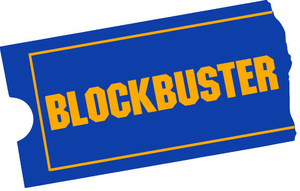 Blockbuster's hardware partner in the DVD rental kiosk business, NCR, has just purchased the second largest DVD kiosk operation in North America. The largest operator is Redbox.
Blockbuster's hardware partner in the DVD rental kiosk business, NCR, has just purchased the second largest DVD kiosk operation in North America. The largest operator is Redbox.
TNR Holdings already has their The New Release and MovieCube kiosks in supermarkets around the US and Canada. Those machines will presumably be replaced with Blockbuster Express branded machines as soon as possible.
Blockbuster hopes to eventually offer not just DVD rentals, but also downloads to portable media players from their kiosks. CEO Jim Keyes has made it clear he sees the company's future tied in part to a successful transition from brick and mortar stores to kiosks.
The company's other major emphasis right now is on making sure their online service, Total Access, is profitable. That was a change last year from the previous CEO's strategy of competing with Netflix for the most online customers.
The Blockbuster kiosks face an uphill battle competing with the number one player, Redbox, whose kiosks are already in prime locations like McDonalds restaurants, Wal-Marts, and several supermarket chains.
The transition from traditional stores to a more self-service and online operation played a part in last year's $374 million loss. NCR's investment in the new technology is key to avoiding a similar performance this year.
Read more...
Written by Rich Fiscus @ 21 Apr 2009 11:22
 Despite its operators being found guilty of making 33 files available for illegal download, infamous Bittorrent tracker website The Pirate Bay is still operating pending appeal. But there have been other casualties in the form of private tracker communities, many of which have closed down in the aftermath of the Pirate Bay trial.
Despite its operators being found guilty of making 33 files available for illegal download, infamous Bittorrent tracker website The Pirate Bay is still operating pending appeal. But there have been other casualties in the form of private tracker communities, many of which have closed down in the aftermath of the Pirate Bay trial.
One tracker based in Sweden, NordicBits, replaced their website with a simple page explaining "We have to shut down the site now due all circumstances. We don.t have time to do anything to the code, we don.t have interest to it, we don.t have any more money and the biggest reason is The Pirate Bay info."
TorrentFreak is reporting a dozen or more trackers will be shutting down soon.
No doubt the entertainment industry will spin this as a victory for copyright holders, like the verdict itself. Considering the history of file sharing, it's hard not to find that a little naive.
Even before the Pirate Bay trial began, there were signs people were moving to other services like MegaUpload, and even to Usenet thanks to providers like Giganews and UseNeXT. There's no evidence to suggest taking down some search engines and punishing a handful of people is going to make file sharing go away.
Read more...
Written by Rich Fiscus @ 20 Apr 2009 2:49
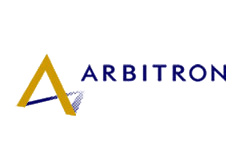 Arbitron has released the results of their annual digital radio survey. It features market analysis of AM/FM based streams, online, satellite, and HD radio, and even Podcasting. They found 17% of respondents said they listened to internet radio during the previous week, nearly a third more than last year's 13%.
Arbitron has released the results of their annual digital radio survey. It features market analysis of AM/FM based streams, online, satellite, and HD radio, and even Podcasting. They found 17% of respondents said they listened to internet radio during the previous week, nearly a third more than last year's 13%.
According to Arbitron, availability of different music and a measure of control over what they hear are the primary reasons for nearly 40% of consumers to choose online radio.
And how are those listeners finding their favorite online radio service? Nearly a third of listeners say they first heard about it on traditional over the air radio broadcast.
Those traditional broadcasters can at least feel secure in their dominance of in-car listening. Fewer than a third of respondents indicated any real interest in using a mobile (in-car) internet connection to listen to internet radio.
But it's easy to see how that could changes as more advanced phones become more common and more consumers are exposed to mobile internet.
Also according to Arbitron, 71% of 12-17 year olds own a portable music player, which is 2% less than last year, but stil 7% more than the percentage of 18-24 year olds who own them. From that age upward the ownership rate continues to decline.
Read more...
Written by Rich Fiscus @ 20 Apr 2009 11:19
 At 10:30 AM Adobe CEO Shantanu Narayen is scheduled to appear as part of the keynote presentation at the annual National Association of Broadcasters (NAB) tradeshow in Las Vegas. Earlier this morning his company announced a new initiative he will be talking about today and throughout the coming week - the Adobe Flash Platform for the Digital Home.
At 10:30 AM Adobe CEO Shantanu Narayen is scheduled to appear as part of the keynote presentation at the annual National Association of Broadcasters (NAB) tradeshow in Las Vegas. Earlier this morning his company announced a new initiative he will be talking about today and throughout the coming week - the Adobe Flash Platform for the Digital Home.
This new platform is intended to bring Flash video to consumers using TVs, settop boxes, and Blu-ray players.
In the second half of 2009 NXP Semiconductors is planning to have the first Flash enabled chip ready to ship to OEMs. Intel, Sigma Designs, and Broadcom are also developing their own chips and Comcast is working to have it used as part of tru2way, the successor to CableCARD technology for TVs, settop boxes, and computers.
The most significant partner in this venture is probably Netflix. Bill Holmes, vice president of Business Development at Netflix, was quoted in Adobe's press release saying "Adobe’s Flash Platform for the Digital Home offers great promise as Netflix continues its expansion directly to the television with our consumer electronics partners."
The Netflix Watch Instantly streaming video service has led their continued growth over the last few months. The availability of settop boxes, blu-ray players, and game consoles with Netflix clients has been a key ingredient to that success.
Read more...
Written by Rich Fiscus @ 17 Apr 2009 9:33
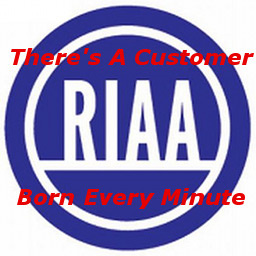 RIAA lawyers won a victory in the Joel Tenenbaum file sharing lawsuit yesterday when a Federal Appeals Court overturned a lower court decision to allow a hearing to be webcast.
RIAA lawyers won a victory in the Joel Tenenbaum file sharing lawsuit yesterday when a Federal Appeals Court overturned a lower court decision to allow a hearing to be webcast.
In her earlier ruling, Federal District Court Judge Nancy Gertner had determined that court rules allowed her the discretion to permit the webcast. In overturning her ruling, appellate judges said Judge Gertner was "palpably incorrect."
They noted the same rule included a list of specific circumstances where broadcasting court proceedings would be appropriate, which wouldn't be necessary if the decision were left in the judge's hands.
Regardless of the court's opinion on the procedural question, what remains to be explained by the RIAA is why they are opposed to the public seeing what goes on in the courtroom. Their lawyers argue it would cause their clients irreparable harm because it could be edited in such a way as to make them look bad.
Although he's sympathetic to the RIAA's concerns, as he told Afterdawn earlier this year, Tenenbaum's lawyer feels the wording of Judge Gertner's ruling addresses the issues. The RIAA would have been given equal access to the original, unedited footage, allowing them to use it for their own "educational" purposes.
Written by Rich Fiscus @ 17 Apr 2009 12:32
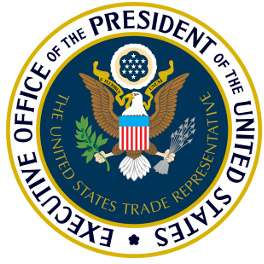 A new draft proposal for ACTA, the treaty that's being secrectly negotiated between a number of different countries with input from entertainment industry lobbyists, has been posted on the Wikileaks website.
A new draft proposal for ACTA, the treaty that's being secrectly negotiated between a number of different countries with input from entertainment industry lobbyists, has been posted on the Wikileaks website.
Although still far from complete, this version of the proposal, being written jointly by representatives of the US and Japan, would require some significant changes to intellectual property law, and not for the better.
Perhaps the most disturbing part has to do with how damages are determined. In one section it suggests each copyrighted work distributed should count as a lost sale, with damages based on that assumption.
Even more disconcerting is the suggestion that the copyright holder should be responsible for determining the value, and simply present their figures to the court. Anyone who has spent any time examining the amount of money the entertainment industry claims to lose annually from infringement can see how problematic this is.
Ironically, the proposal suggests that non-governmental intellectual property experts should be consulted on the treaty's language. It recommends "seeking input from non-governmental persons or groups, particularly with respect to best practices in the field of intellectual property enforcement."
Read more...
Written by Rich Fiscus @ 16 Apr 2009 11:31
 In the first week after Apple rolled out their variable pricing model for songs from iTunes the results are mixed. The good news is that revenue is up slightly. Unfortunately it comes at the expense of track sales at the highest price point.
In the first week after Apple rolled out their variable pricing model for songs from iTunes the results are mixed. The good news is that revenue is up slightly. Unfortunately it comes at the expense of track sales at the highest price point.
Total track sales were actually up for the week, as were sales of $0.99 songs. But the 33 tracks which were increased from $0.99 to $1.29 sold 12.5% few units than the previous week.
As a result, sales of songs in the top 100 rose significantly less than total sales.
If this trend continues, the obvious question is whether it's more useful to make more money per track or get your music on the hands of more consumers. This is where things get much more interesting.
Artists almost certainly benefit more from increasing the number of listeners. The labels, are probably best served by a higher profit margin per track, at least in the short term. And label executives don't exactly have a history of long term planning.
Written by Rich Fiscus @ 16 Apr 2009 10:55
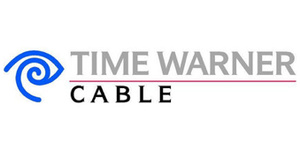 Time Warner has put plans to expand their metered internet service plans to New York and North Carolina on hold. It seems they underestimated how much attention it would generate and now they are in damage control mode.
Time Warner has put plans to expand their metered internet service plans to New York and North Carolina on hold. It seems they underestimated how much attention it would generate and now they are in damage control mode.
Despite apparently clear evidence that their customers may just not be interested in paying an additional amount for the unlimited service they get now, Time Warner Cable executives are spinning it as an education problem. In a statement, CEO Glenn Britt said "It is clear from the public response over the last two weeks that there is a great deal of misunderstanding about our plans to roll out additional tests on consumption based billing."
Of course it's possible that the real catalyst for Time Warner's decision was New York Senator Charles Schumer's public opposition to the plan.
Britt added, "We look forward to continuing to work with Senator Schumer, our customers and all of the other interested parties as the process moves forward, to ensure that informed decisions are made about the best way to continue to provide our customers with the level of service that they expect and deserve from Time Warner Cable."
Written by Rich Fiscus @ 15 Apr 2009 11:14
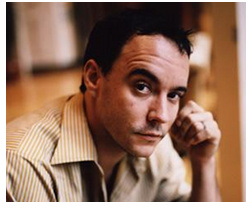 Just over a day ago Dave Matthews Band fans found out they could get a song from the upcoming album,
Just over a day ago Dave Matthews Band fans found out they could get a song from the upcoming album,
Big Whiskey & The Groogrux King
for free. What makes it particularly interesting is their decision to announce it on Twitter.
Dave Matthews has over 400,000 followers on
Twitter so it only makes sense to use that network to spread the word about a new promotion. It's exactly the sort of thing that's making Twitter more popular for artists looking to keep in touch with their fanbase.
No one is likely to suggest Twitter is the complete answer to any musician's promotional needs. But it does illustrate how many of the responsibilities traditionally handled by a label can now be taken care of without them now - in a more personal and arguably more effective manner.
You can download the Dave Matthews Band song "Funny The Way It Is" on their
label's website.
Written by Rich Fiscus @ 15 Apr 2009 9:31
 AT&T is rumored to be negotiating with Apple to extend their agreement to be the US iPhone provider. The carrier's exclusive contract is currently set to expire in 2010. According to the Wall Street Journal, AT&T CEO Randall Stephenson is hoping to extend it another year.
AT&T is rumored to be negotiating with Apple to extend their agreement to be the US iPhone provider. The carrier's exclusive contract is currently set to expire in 2010. According to the Wall Street Journal, AT&T CEO Randall Stephenson is hoping to extend it another year.
Although the plan to work with just a single mobile phone provider per country was scrapped by Apple with last year's iPhone 3G launch, that doesn't mean they aren't still interested in such exclusive arrangements.
This appears to be part of AT&T's strategy to concentrate on mobile customers, rather than their traditional landline business. In a recent interview, Stephenson noted "We have 77 million wireless customers and 30 million consumer phone lines," asking "which customer base would you rather work from?"
Written by Rich Fiscus @ 15 Apr 2009 12:19
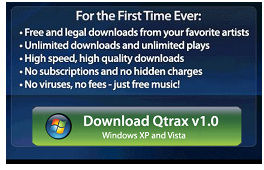 For many people Qtrax is probably still remembered as the free music service that didn't launch as promised last January because they didn't have the rights to offer any music. But with the demise of SpiralFrog last month it became the biggest name in label approved free music.
For many people Qtrax is probably still remembered as the free music service that didn't launch as promised last January because they didn't have the rights to offer any music. But with the demise of SpiralFrog last month it became the biggest name in label approved free music.
Yesterday they passed a major milestone by finally introducing the first full release version of their client software. Despite already having deals in place to offer music from all the major labels, their download client (based on the open source Songbird project) has remained in beta status. Today that changed as version 1.0 was released.
The new client doesn't offer any ground breaking new features. Like SpiralFrog did, it gives you access to music from the major labels that's free, but contains Microsoft DRM. You must be connected to the internet and using a Windows computer to play them.
Read more...
Written by Rich Fiscus @ 01 Apr 2009 2:06
 Given the domination of the home video and TV markets by various digital formats, connecting a PC to your home theater makes more sense than ever. With the introduction last year of LiquidTV, Nero hoped to provide another good argument to make that connection.
Given the domination of the home video and TV markets by various digital formats, connecting a PC to your home theater makes more sense than ever. With the introduction last year of LiquidTV, Nero hoped to provide another good argument to make that connection.
For the last month and a half I've been using LiquidTV, and I believe it's capable of filling a market niche that has been underserved until now. It doesn't try to be everything to all people. Instead it has a narrow focus on turning your PC into a TiVo.
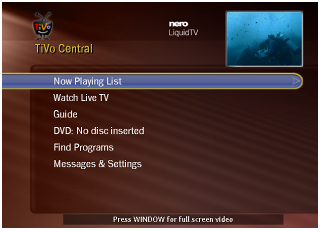 When I say TiVo I don't mean it in the generic sense of a DVR. LiquidTV actually uses the TiVo interface, as well as requiring a TiVo subscription. Fortunately a one-year subscription is included with the purchase price.
When I say TiVo I don't mean it in the generic sense of a DVR. LiquidTV actually uses the TiVo interface, as well as requiring a TiVo subscription. Fortunately a one-year subscription is included with the purchase price.
If you buy the retail box, so is a Hauppauge WinTV-HVR-950Q USB capture device. Whether you opt for the retail bundle or just the software (via download), the cost is comparable to other TV recording products like BeyondTV or SageTV. The first year's TiVo service ends up being free.
Price Advantage
PC based DVRs aren't for everyone, but they do have some distinct advantages over a standalone unit. For starters consider the price.
Read more...

 Players for China's CBHD format, formerly known as CH-DVD in China and C-HD-DVD by the DVD Forum, are finally available.
Players for China's CBHD format, formerly known as CH-DVD in China and C-HD-DVD by the DVD Forum, are finally available.

 In the aftermath of the
In the aftermath of the  The
The  The judge who
The judge who  A proposal for extending copyright protection for sound recordings in EU member states to 70 years passed the European Parliament today. The original proposal for extending copyright for these recordings to 95 years had been approved by the European Commission and Parliament's
A proposal for extending copyright protection for sound recordings in EU member states to 70 years passed the European Parliament today. The original proposal for extending copyright for these recordings to 95 years had been approved by the European Commission and Parliament's  The new Bluetooth 3.0 specification has been released. The biggest change from Bluetooth 2.0 appears to be the addition of high speed capabilities borrowed from WiFi networking.
The new Bluetooth 3.0 specification has been released. The biggest change from Bluetooth 2.0 appears to be the addition of high speed capabilities borrowed from WiFi networking.
 A 2 CD album offered exclusively to U2's paid website subscribers has been spotted on internet torrent trackers for download via BitTorrent. This follows the leak of their latest album earlier this year.
A 2 CD album offered exclusively to U2's paid website subscribers has been spotted on internet torrent trackers for download via BitTorrent. This follows the leak of their latest album earlier this year.
 Blockbuster's hardware partner in the DVD rental kiosk business, NCR, has just purchased the second largest DVD kiosk operation in North America. The largest operator is Redbox.
Blockbuster's hardware partner in the DVD rental kiosk business, NCR, has just purchased the second largest DVD kiosk operation in North America. The largest operator is Redbox.
 Arbitron has released the results of their annual digital radio survey. It features market analysis of AM/FM based streams, online, satellite, and HD radio, and even Podcasting. They found 17% of respondents said they listened to internet radio during the previous week, nearly a third more than last year's 13%.
Arbitron has released the results of their annual digital radio survey. It features market analysis of AM/FM based streams, online, satellite, and HD radio, and even Podcasting. They found 17% of respondents said they listened to internet radio during the previous week, nearly a third more than last year's 13%.
 At 10:30 AM Adobe CEO Shantanu Narayen is scheduled to appear as part of the keynote presentation at the annual National Association of Broadcasters (NAB) tradeshow in Las Vegas. Earlier this morning his company announced a new initiative he will be talking about today and throughout the coming week - the Adobe Flash Platform for the Digital Home.
At 10:30 AM Adobe CEO Shantanu Narayen is scheduled to appear as part of the keynote presentation at the annual National Association of Broadcasters (NAB) tradeshow in Las Vegas. Earlier this morning his company announced a new initiative he will be talking about today and throughout the coming week - the Adobe Flash Platform for the Digital Home.
 RIAA lawyers won a victory in the Joel Tenenbaum file sharing lawsuit yesterday when a Federal Appeals Court overturned a lower court decision to allow a hearing to be webcast.
RIAA lawyers won a victory in the Joel Tenenbaum file sharing lawsuit yesterday when a Federal Appeals Court overturned a lower court decision to allow a hearing to be webcast.
 A new draft proposal for ACTA, the treaty that's being secrectly negotiated between a number of different countries with input from entertainment industry lobbyists, has been
A new draft proposal for ACTA, the treaty that's being secrectly negotiated between a number of different countries with input from entertainment industry lobbyists, has been  In the first week after Apple rolled out their variable pricing model for songs from iTunes the results are mixed. The good news is that revenue is up slightly. Unfortunately it comes at the expense of track sales
In the first week after Apple rolled out their variable pricing model for songs from iTunes the results are mixed. The good news is that revenue is up slightly. Unfortunately it comes at the expense of track sales  Time Warner has put plans to expand their metered internet service plans to New York and North Carolina on hold. It seems they underestimated how much attention it would generate and now they are in damage control mode.
Time Warner has put plans to expand their metered internet service plans to New York and North Carolina on hold. It seems they underestimated how much attention it would generate and now they are in damage control mode.
 Just over a day ago Dave Matthews Band fans found out they could get a song from the upcoming album,
Just over a day ago Dave Matthews Band fans found out they could get a song from the upcoming album,  AT&T is rumored to be negotiating with Apple to extend their agreement to be the US iPhone provider. The carrier's exclusive contract is currently set to expire in 2010. According to the Wall Street Journal, AT&T CEO Randall Stephenson is hoping to extend it another year.
AT&T is rumored to be negotiating with Apple to extend their agreement to be the US iPhone provider. The carrier's exclusive contract is currently set to expire in 2010. According to the Wall Street Journal, AT&T CEO Randall Stephenson is hoping to extend it another year.
 For many people Qtrax is probably still remembered as the free music service that
For many people Qtrax is probably still remembered as the free music service that  Given the domination of the home video and TV markets by various digital formats, connecting a PC to your home theater makes more sense than ever. With the introduction last year of LiquidTV, Nero hoped to provide another good argument to make that connection.
Given the domination of the home video and TV markets by various digital formats, connecting a PC to your home theater makes more sense than ever. With the introduction last year of LiquidTV, Nero hoped to provide another good argument to make that connection.
 When I say TiVo I don't mean it in the generic sense of a DVR. LiquidTV actually uses the TiVo interface, as well as requiring a TiVo subscription. Fortunately a one-year subscription is included with the purchase price.
When I say TiVo I don't mean it in the generic sense of a DVR. LiquidTV actually uses the TiVo interface, as well as requiring a TiVo subscription. Fortunately a one-year subscription is included with the purchase price.







